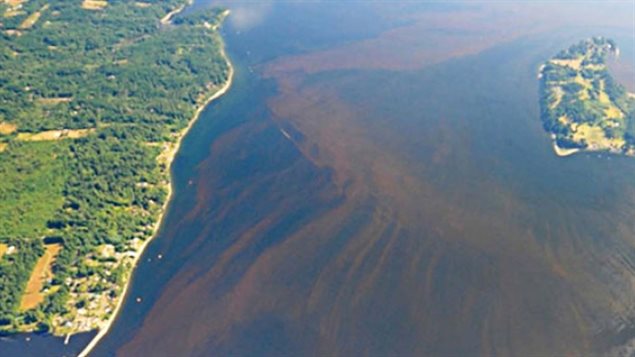Vancouver – (THE CAMPING CANUCK) – According to to a new study, unusually warm Pacific Ocean temperatures helped cause a massive bloom of toxic algae last year that closed lucrative fisheries from California to British Columbia and disrupted marine life from seabirds to sea lions.
Nicknamed the “blob,” the vast ribbon of toxic algae that flourished in 2015 and produced record-breaking levels of a neurotoxin that is harmful to people, fish and marine life has been linked to patches of abnormally warm water.
“We have toxic algae events that result in shellfish closures off the Washington and Oregon coast every three to five years or so, but none of them have been as large as this one,” said lead author Ryan McCabe, a research scientist at the UW’s Joint Institute for the Study of the Atmosphere and Ocean, a collaborative center with NOAA. “This one was entirely different, and our results show that it was connected to the unusual ocean conditions.”
“This paper is significant because it identifies a link between ocean conditions and the magnitude of the toxic bloom in 2015 that resulted in the highest levels of domoic acid contamination in the food web ever recorded for many species,” said co-author Kathi Lefebvre, a marine biologist at NOAA’s Northwest Fisheries Science Center. “This is an eye-opener for what the future may hold as ocean conditions continue to warm globally.”
Temperature was not the sole cause, said McCabe to the Associated Press. McCabe added, “we think there is a link between toxic events along our climate variability indices.”



